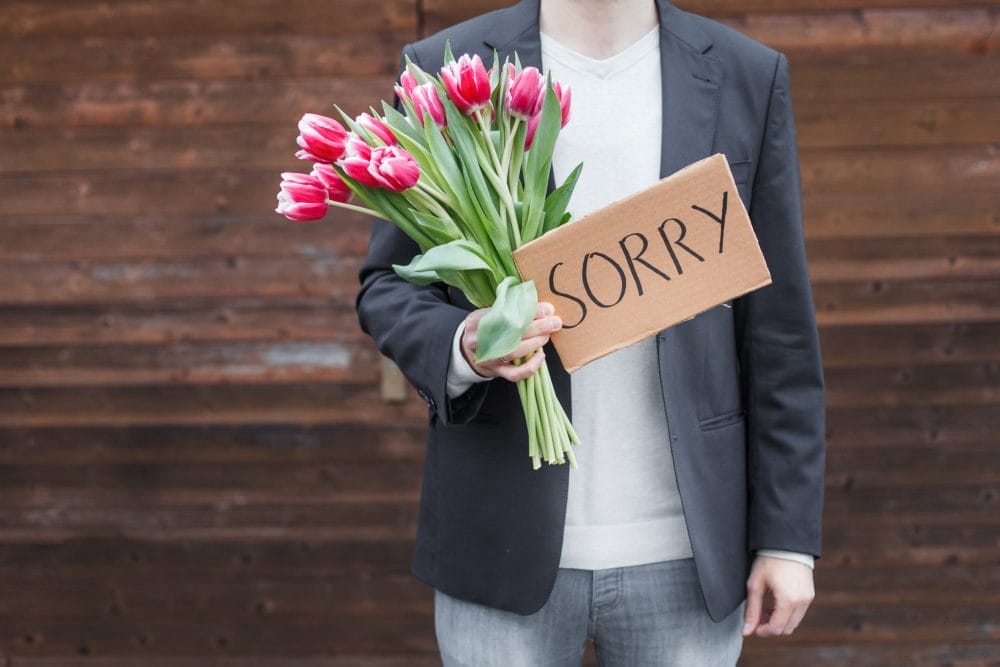Apologies are often seen as the ultimate salve for wounds in relationships, friendships, and workplaces. A sincere “I’m sorry” can mend hearts, clear the air, and pave the way for true healing. Yet, not all apologies carry the power they promise; some apologies sting more than silence ever could.
When poorly crafted or carelessly delivered, an apology can inflame old hurts, spark new arguments, and make trust even harder to rebuild. Understanding the hidden pitfalls of certain apologies is essential for anyone who genuinely wants to repair, not ruin, what remains.
1. The Defensive Apology
A defensive apology usually comes wrapped in the cloak of excuses and justifications. Instead of acknowledging the pain caused, it shifts the focus to the offender’s intentions or circumstances. This kind of apology leaves the wounded person feeling unheard and blamed for misunderstanding. It turns a chance for accountability into a debate about who is really at fault. In the end, the defensive apology can deepen resentment and close the door to honest dialogue.
2. The Conditional Apology
Conditional apologies often start with “If” or “But,” which instantly drains them of sincerity. Saying “I’m sorry if you were offended” suggests the offense might not even exist. This form of apology makes the injured party feel gaslit, as though their experience is being questioned. Instead of owning the harm, the speaker pushes responsibility back onto the hurt person. Conditional apologies keep wounds open and trust out of reach.
3. The Public Relations Apology
When a misstep goes public, some choose to apologize for the sake of saving face rather than expressing genuine remorse. These apologies often read like carefully scripted statements lacking emotion or responsibility. They tend to focus on damage control rather than the human impact of the wrongdoing. Those affected can sense the difference between words crafted for headlines and words spoken from the heart. A public relations apology can make people feel manipulated rather than respected.
4. The Guilt-Trip Apology
Some apologies are laced with hidden barbs that twist guilt back onto the person who was hurt. A statement like “I’m sorry I’m such a terrible person” demands comfort instead of offering it. This apology flips the dynamic so that the wronged party feels obliged to reassure the offender. Instead of healing, it creates confusion and resentment by making the apology about the one who caused the harm. Guilt-trip apologies only deepen the emotional mess they claim to clean up.
5. The Repeat Offender’s Apology
An apology loses it’s worth when paired with a pattern of repeated behavior. Hearing “I’m sorry” for the same mistake time and again erodes any sense of safety or respect. This cycle can feel like an empty ritual rather than an honest effort to change. Without visible action or growth, repeated apologies become hollow noise. Over time, they teach people that words are cheap, and promises are worthless.
6. The Blame-Shifting Apology
A blame-shifting apology slyly points the finger elsewhere while pretending to be contrite. Phrases like “I’m sorry you feel that way because you…” sneak blame into what should be an act of owning up. Instead of acknowledging the harm done, this approach subtly implies that the other person’s feelings are the real issue. This tactic only fuels conflict and leaves resentment to fester beneath the surface. An apology that shifts blame makes true reconciliation impossible.
7. The Forced Apology
Sometimes, apologies are demanded rather than freely given, leading to hollow words with no real backing. A forced apology often sounds robotic and resentful, stripped of genuine feeling. It satisfies an immediate need for resolution but fails to bring any lasting peace. The recipient can sense when remorse is missing and often ends up feeling insulted rather than comforted. A forced apology can widen the gap it was meant to bridge.
Don’t Do Apologies Incorrectly
In a world where trust is fragile and relationships demand careful tending; apologies should never be treated as throwaway lines. A sincere apology requires humility, honesty, and a willingness to accept responsibility without conditions or excuses. The wrong kind of apology can reopen wounds, add salt to them, and destroy what little trust remains. Knowing which apologies cause more harm than good can protect connections and encourage real accountability. For anyone who wants to build stronger bonds, learning the art of the right apology is an act of respect that echoes far beyond a simple “I’m sorry.”
What kinds of apologies have left you feeling worse than before? Share your thoughts and experiences in the comments below.
Read More
10 Things People Regret Saying to Their Kids in Anger
8 Habits That Make You Look Emotionally Immature








